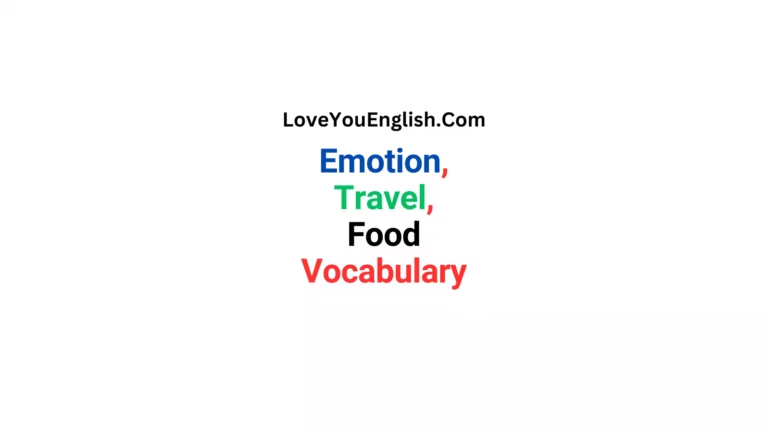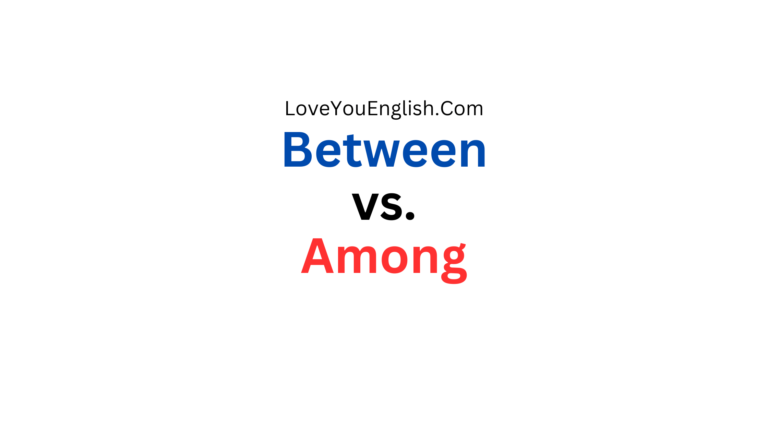English Words to Describe Sounds: A Simple Guide
🔊 Why Should You Learn Sound Words?
Sound words help you describe your world better.
Instead of saying:
-
“There was a sound outside,”
You can say:
-
“There was a loud bang outside.”
It makes your speaking and writing more clear, interesting, and powerful.
📢 Types of Sounds and Their Words
We will look at sound words in different categories.
1. Animal Sounds
Animals make many different sounds. Here are some common ones:
| Animal | Sound Word | Example Sentence |
|---|---|---|
| Dog | bark | The dog barked loudly at the stranger. |
| Cat | meow | I heard the cat meowing at the door. |
| Cow | moo | The cow mooed in the morning. |
| Lion | roar | The lion roared in the zoo. |
| Snake | hiss | The snake hissed and scared me. |
| Bird | chirp/tweet | Birds chirped happily in the tree. |
| Horse | neigh | The horse neighed in the stable. |
| Duck | quack | The duck quacked near the pond. |
| Frog | croak | Frogs croaked after the rain. |
| Bee | buzz | A bee buzzed near my ear. |
👉 These words are also called onomatopoeia — words that sound like the sound they describe.
2. Human Sounds
People also make many types of sounds. Let’s look at some examples.
| Sound Word | Meaning | Example Sentence |
|---|---|---|
| laugh | sound of being happy | She laughed at the joke. |
| cry | sound of sadness | The baby cried all night. |
| shout | loud voice, often in anger or fear | He shouted for help. |
| whisper | very soft, quiet voice | She whispered a secret to me. |
| scream | loud and high voice, often in fear | He screamed when he saw the spider. |
| cough | sudden sound from the throat | She coughed during the class. |
| sigh | a long breath to show feelings | He sighed in relief. |
| snore | sound made during sleep | Grandpa snores loudly every night. |
| hum | soft singing without words | She hummed her favorite tune. |
| giggle | light, silly laughter | The children giggled in the corner. |
3. Sounds at Home
There are many sounds we hear at home. Learn these sound words:
| Sound Word | What It Describes | Example Sentence |
|---|---|---|
| ring | sound of a bell or phone | The phone rang loudly. |
| knock | hitting a door | Someone knocked at the door. |
| click | sound from a mouse or switch | He clicked the mouse twice. |
| creak | slow sound from wood or doors | The door creaked open. |
| bang | loud, sudden sound | There was a bang from the kitchen. |
| beep | short high sound from machines | The microwave beeped. |
| slam | closing something loudly | She slammed the door. |
| drip | water falling drop by drop | Water dripped from the tap. |
| crash | sound of something breaking | The glass crashed to the floor. |
| tick | soft clock sound | The clock ticked quietly. |
4. Sounds in Nature
Nature is full of beautiful and scary sounds. Let’s learn how to describe them.
| Sound Word | Meaning | Example Sentence |
|---|---|---|
| rustle | soft sound of leaves or paper moving | The leaves rustled in the wind. |
| howl | loud sound by wolves or wind | The wind howled at night. |
| rumble | deep sound like thunder or an engine | Thunder rumbled in the sky. |
| splash | sound of water falling | He splashed water in the pool. |
| crackle | sharp, popping sound | The fire crackled in the fireplace. |
| patter | light sound of rain | The rain pattered on the roof. |
| roar | loud sound like a waterfall | The river roared down the hill. |
| whistle | high sound made by wind or lips | The wind whistled through the trees. |
| chirp | short, sharp bird sound | Birds chirped at sunrise. |
| gush | fast, strong flow of liquid | Water gushed from the pipe. |
5. Machine and Vehicle Sounds
Machines also make different sounds. These are useful when you talk about vehicles or tools.
| Sound Word | Meaning | Example Sentence |
|---|---|---|
| honk | sound of a car horn | The car honked at the red light. |
| zoom | fast moving sound | The bike zoomed past me. |
| vroom | engine sound of a fast car or bike | The racer’s car went vroom! |
| bang | sudden loud sound | The machine made a bang and stopped. |
| beep | short sound from a button/machine | The washing machine beeped. |
| clang | loud metal sound | The metal gate clanged shut. |
| whirr | fast spinning sound | The fan whirred above our heads. |
| rattle | shaking sound | The toolbox rattled in the car. |
| hum | low continuous sound | The fridge hums quietly. |
| screech | sharp, loud, unpleasant sound | The tires screeched on the road. |
💡 Tips to Remember Sound Words
-
Listen carefully: When you hear a sound, try to notice how it feels. Is it loud or soft? Fast or slow?
-
Use your imagination: Many sound words are imitations of the sound. For example, “buzz” sounds like a bee!
-
Use them in sentences: Try to use these words when writing stories, essays, or speaking in class.
-
Group them by category: Like we did above — animals, people, nature, etc. It’s easier to remember.
📝 Practice Time!
Let’s try a short exercise. Match the sound word to the correct sentence.
Sound Words: meow, crackle, splash, honk, sigh
Sentences:
-
The firewood began to _______ in the fire.
-
She let out a _______ after finishing her exam.
-
I heard the cat _______ outside the window.
-
He fell into the pool with a big _______.
-
The car _______ loudly at the corner.
✅ Answers:
-
crackle
-
sigh
-
meow
-
splash
-
honk
🧠 Sound Words vs. Adjectives of Sound
Some words describe the type of sound instead of imitating the sound.
Here are some useful adjectives:
| Adjective | Meaning | Example Sentence |
|---|---|---|
| loud | very strong noise | The music was too loud. |
| soft | gentle and quiet | She spoke in a soft voice. |
| harsh | rough or unpleasant sound | The alarm had a harsh sound. |
| pleasant | nice to hear | The music was pleasant. |
| sharp | high and strong | There was a sharp whistle. |
| quiet | very little sound | The room was quiet. |
| deep | low and strong | He has a deep voice. |
| shrill | very high and unpleasant | She gave a shrill scream. |
Use these adjectives with sound words to make better sentences.
🗣️ Use in Real Life
Try this activity:
Observe your surroundings for 10 minutes. Write down five sounds you hear and try to describe them.
Example:
-
A car honked loudly.
-
A bird chirped sweetly.
-
The clock ticked slowly.
This small habit can improve your vocabulary and listening skills.
🎯 Final Words
Learning how to describe sounds in English is fun and useful. It helps you become a better speaker and writer. Whether you’re telling a story, writing an essay, or just talking about your day, sound words add life to your language.
Keep listening. Keep practicing. Keep learning.
Soon, you’ll be able to describe every sound around you with the right English word.
Did you find this guide useful? Share it with your friends or students!
If you want more lessons like this, stay connected. Happy learning!
More interesting topics:
- What Are English Proverbs? Definition and Examples
- What Are Modifiers? How to Use Them Correctly, With Examples
- How to Use Nowhere, Somewhere, Everywhere, and Anywhere






